About us
ALIGN Safeguarding
was born through a deep passion for healing, social justice and a drive to continue embedding holistic, culturally and spiritually affirming practice into therapeutic experiences and Safeguarding Services.
https://youtu.be/4ehDKa_UeG8
Align Core Values
Trauma Informed Care and Practice (TICP)
Non-trauma-informed services often mirror the power and control experienced in the abusive relationships that caused the past trauma making recovery difficult and the risk of re-traumatisation real. TICP is informed by an understanding of the vulnerabilities and ‘triggers’ that survivors of trauma experience, delivering better outcomes, minimising re-victimisation and ensuring that self and community wellness and connectedness can be promoted.
TICP is an integral part of Align’s recovery-oriented practice. It acknowledges and clearly articulates that no one understands the challenges of the recovery journey from trauma better than the person living it. The core principles of Trauma-Informed Care and Practice (TICP) are; safety, trustworthiness, choice, collaboration and empowerment. A Strengths Based and TICP approach: promotes safety; fosters honesty and transparency; recognises the impact of power differentials; maximises self-determination; supports autonomy; and empowers individuals to learn about the nature of their injuries; enabling them to build capacity to take responsibility in their own recovery.
Personnel have a responsibility to outwork these principles:
- Safety
The foundational principle in supporting individuals who have experienced trauma is safety. Align personnel will establish conditions of safety – ensuring both physical and emotional safety. - Trustworthiness
Trustworthiness is developed through task clarity, by ensuring consistency in practice and by maintaining appropriate boundaries. Align personnel will establish and maintain clarity around support related tasks and boundaries. Align and personnel must look at ways to maximise opportunities to facilitate this kind of honesty and transparency, to foster trust and reinforce TICP. - Choice
Maximising choice and control helps those seeking support to regain a sense of control over their daily lives and build competencies that will strengthen their sense of autonomy. Align personnel are to keep clients well-informed about all aspects of the support being provided and outline clear expectations. Align personnel will seek to provide opportunities for clients to make decisions and participate in the creation of personal goals. - Collaboration
Maximise collaboration and sharing of power across Align personnel and clients. Align personnel will value the client’s story and aim to breakdown power differentials through sharing power and decision-making. Align personnel will treat individuals with dignity and ensures their personal values are respected throughout the support process. - Empowerment
Align personnel will prioritise empowerment and skill-building. The client/worker/organisation relationship is defined as power with, not power over – ensuring that the client has responsibility over the terms of their support. This is a key in activating a Strengths-Based approach by assuming all clients bring with them personal, family and community strengths from which the basis of healing can be formed (scaffolding). Align personnel will seek to empower clients to build their capacity, enabling them to exercise more control over their own lives and environments (recovery journey).
Strength based and Rights focused approach
Embedded in Trauma Informed Care and Practice (TICP) is a Strengths Based framework. Align’s operations and support activities are guided by Strengths Based Approaches. In all conduct Align personnel are expected to outgwork these principles:
- Collaborative: Fit with the clients’ understanding and belief system. Treat individuals with dignity and ensure their personal values are respected throughout the support process.
- Empowering: Relationship is defined as power with, not power over, where the client has responsibility over the terms of their recovery.
- Resilient: Assume individuals bring strengths, relationships and experience that provides scaffolding on which solutions and healing can be built.
- Mindful: Use language that shifts focus from deficit, problem centred to one that focuses on strengths, possibilities, hopes and aspirations.
Personnel have a responsibility to:
- Through all engagement with clients demonstrate an attitude that “the problem is the problem; the person is not the problem.”(McCashen, 2010)
- Work alongside people and recognise that they have strengths and ability to bring about change in their lives
- Demonstrate a positive attitude about people’s dignity, capacities, rights, uniqueness and commonalities
Self-determination is concerned with the fundamental right of people to shape their own lives’. In a practical sense, self-determination means that we have the freedom to live well, to determine what it means to live well according to our own values and beliefs. Align stands for self- determination for all people and especially concerning Aboriginal and Torres Striate Islander people. Align personnel are expected to recognise the self-determination of all people and that of Aboriginal and Torres Striate Islander people, their collective/group identities (such as our nations, language groups, clans, family alliances or communities).
Personnel have a responsibility to recognise that:
- People have choice in determining how their lives are governed and development is shaped.
- People are to participate in decisions that affect their lives. This includes a right to formal recognition of their group identities.
- People have control over their lives and future including their economic, social and cultural development.
Justice: We stand firm, act responsively and persevere
Personnel have a responsibility to:
- Ensure that they accurately convey Align’s purpose, values and goals
- Respectfully listen to and receive information and suggestions from others in a collaborative way
- Make well-considered justifiable decisions, especially where they may have an adverse impact on others
- Report suspected unethical behaviour or wrong-doing by another to an appropriate person or in accordance with Align’s procedure for reportable conduct
- Admit and take responsibility for their mistakes and work to rectify problems as quickly as possible
- Ensure those who have admitted mistakes are treated with fairness and dignity
- Where possible, suggest improvement in the workplace or the broader community through research, reflection and innovation
Honesty: We embrace openness and transparency, and act with integrity, probity and fairness
Personnel have a responsibility to:
- Engage in genuine dialogue with other personnel and stakeholders through transparent, open, honest and consistent communication and consultation
- Be accountable in all work that they do and act with authenticity, sincerity and integrity
- Disclose all relevant information applying to them effectively performing their role
- Immediately disclose all charges, convictions and other outcomes of an offence that relates to child abuse or violence against another person which occurred before, or occurs during, association with Align
- Comply with all applicable legislative and regulatory requirements applying to the operation of Align
- Perform duties diligently, ethically and conscientiously and in accordance with reasonable and lawful supervisory directions
- Comply with Align’s policies and procedures as amended from time to time
- Take all reasonable steps to avoid any conflict of interest in the course of their employment or engagement with Align, and immediately disclose, in writing to the Directors as appropriate, if a potential, perceived or actual conflict of interest arises
- Not use their position for advantage or personal gain
- Not solicit nor accept any gifts, benefits or favours for themselves or for another person unless they comply with the conditions set out in Align’s policies and procedures
- Avoid any conduct, including alcohol or substance abuse or misuse, which would adversely affect their work performance
- Only make public comment when authorised to do so and not bring Align into disrepute through their comments
Compassion: We honour the dignity of all and work with understanding, respect and care
Personnel have a responsibility to:
- Act equitably, fairly and reasonably and treat others with honesty, respect, courtesy, sensitivity and compassion
- Behave and communicate in a manner that does not intimidate, offend, degrade or humiliate, and which does not harass, sexually harass, unlawfully discriminate or bully
- Maintain a respectful, co-operative and collaborative approach to all working and work-related relationships and take all reasonable steps to resolve issues at the lowest possible level in a fair and timely manner
- Respect the confidentiality and privacy of other personnel and stakeholders
- Use all forms of social media platforms and online activities belonging to or connected with Align in a responsible and appropriate manner, and not bring Align into disrepute through their personal use of social media
- Actively participate and contribute to the workplace to foster productivity and equity in the workload and a positive workplace culture
- Make all reasonable efforts to project a professional public image including refraining from wearing clothing that may offend or is insensitive to other cultures, religious groups or individuals
The safeguarding of children, and adults, is fundamental to our work, it underpins all
decision making and we are committed to giving children and adults a voice
Personnel have a responsibility to:
- Treat all children, and adults with respect regardless of their race, colour, gender, language, religion, opinions, nationality, ethnicity, social origin, property, disability, sexual orientation or other status
- Use language or behaviour that is appropriate and in no way harassing, abusive, sexually provocative, demeaning or culturally inappropriate
- Use computers, mobile phones, video cameras, cameras and social media appropriately and not as a means to exploit, harass or place children or adults
- Obtain informed consent before photographing, filming or audio-recording others. An explanation of how the photograph, film or recording will be used must be understood by all parties involved
- Ensure file labels, meta data or text descriptions do not reveal identifying information about children and adults when sending and/or forwarding images electronically or publishing images in any form
- Report suspected unethical behaviour or wrongdoing by another to an appropriate person or in accordance with Align’s procedure for reportable conduct
Align finances, facilities, equipment and information systems are accessed and or utilised only for the purposes for which they are intended. We uphold the confidentiality and privacy of personal information
Personnel have a responsibility to:
- Use entitlements, equipment, facilities, resources and funds for their proper purpose and in accordance with Align policy.
- Only access and/or use intellectual property, including information on electronic systems and hard copy files, for their intended/proper purpose.
- Adhere to proper records and information management practices and procedures, so that records are confidential, secure, complete, up-to-date and capable of providing organisational accountability.
- Make reasonable efforts to actively engage in learning and in personal and professional development, to continually improve their skills and knowledge relevant to their role and area of expertise, and for personal growth.
- Identify and report all workplace health and safety risks or security incidents and take all reasonable care for the health and safety of others including those who may be affected by their acts or omissions at work.
Commitment
At ALIGN Safeguarding, we are committed to fostering a culture of safety and care for children and adults. Align commits to promoting the dignity and integrity of every person, and to deliver services that are of the highest quality.
What we stand for
At ALIGN Safeguarding, we have a team of qualified and competent personnel who assist us in meeting the needs of our clients and partners. All of our work is guided by our core values. Our personnel have a responsibility to meet the high standards of professional and ethical behaviour required by Align, including complying with legislative and industrial requirements (such as the ACA Code) when interacting with clients, colleagues, service users, contractors, and the wider community.
Align Partners
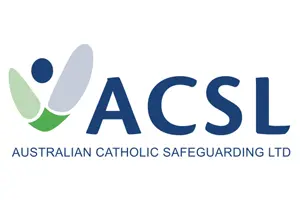
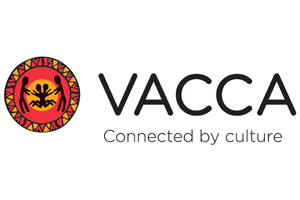
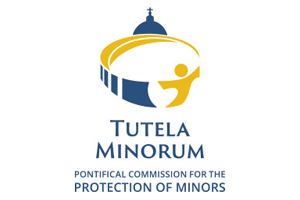
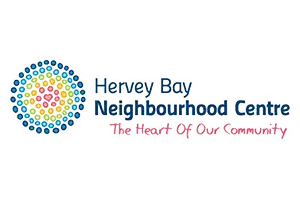
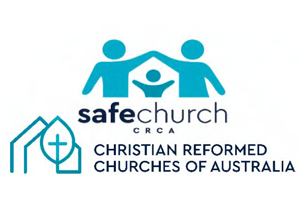
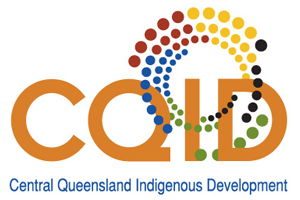
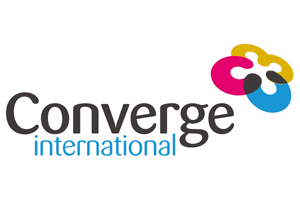
Newsletter
Stay updated with our news!
Thank you!
You have successfully joined our subscriber list.
Contact us
Guidelines

Privacy Policy
Terms and Conditions
Disclaimer
Know more about us
@2023 Align Safeguarding. All rights reserved.

